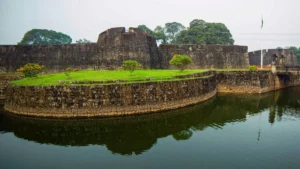The Hunter Commission is an important topic in Indian history. There were two commissions with the same name but different purposes. The first was in 1882 to improve education in India. The second was in 1919 to investigate the Jallianwala Bagh tragedy. Both commissions were led by William Hunter and played a big role in shaping India’s education and revealing British actions during colonial rule.
Hunter Commission of 1882
After the 1857 Revolt, the British crown took direct control of India from the East India Company. There was a need to improve education, as the earlier Wood’s Despatch of 1854 was not fully followed. So, Lord Ripon, the Viceroy of India, formed a new commission in 1882 under Sir William Hunter.
Members of the Commission
The commission had 20 members, including 7 Indians. Some Indian members were:
- Anand Mohan Bose
- K.T. Telang
- Syed Mahmud
- Bhudev Mukherjee
- Hari Gulam
- Maharaja Jitendra Mohan Tagore
Main Goals of the Hunter Commission
- To check the condition of primary education in India.
- To review the work of missionary schools.
- To check how well Wood’s Despatch was followed.
- To decide whether the government should continue giving education.
Main Recommendations of 1882 Commission
- Local bodies like district boards should manage primary schools.
- Mother tongue should be used in primary schools.
- The syllabus should match local needs, including practical subjects like farming and math.
- Special schools should be set up to train teachers.
- Education for tribal and backward areas should be improved.
- Secondary education should be divided into: Type A – for higher education; Type B – For job training.
- Secondary schools should be run by private groups with help from the government.
- Each district should have a model government school.
- No religious teaching in government schools.
- Women’s education should have a separate curriculum.
- Special focus should be given to Muslim and backward communities.
- Grants for colleges should be based on need and quality.
- Preference should be given to Indian teachers with English education.
Hunter Commission of 1919
On April 13, 1919, during the festival of Baisakhi, British soldiers under General Dyer opened fire on a peaceful gathering at Jallianwala Bagh in Amritsar. Over 1,600 people were killed or injured. The incident caused global anger. To investigate the tragedy, the British government formed a committee on October 14, 1919. It started working on November 19, 1919 and was also called the Hunter Commission.
Members of the Hunter Commission 1919
The commission had 7 members, including 3 Indians:
- Lord William Hunter – Chairman
- W.F. Rice – Secretary
- Major General Barrow
- Justice G.C. Rankin
- Sardar Sultan Ahmed Khan
- Pandit Jagat Narayan
- Sir Chimanlal Setalvad
Findings of the Hunter Commission of 1919
- The commission blamed General Dyer for not giving any warning before firing.
- It said the people at Jallianwala Bagh were not trying to rebel.
- The 10 minutes of firing was seen as a big mistake.
- The British officials did not punish Dyer because many senior officers supported him.
- He was found guilty of a “wrong idea of duty” and was removed from his post and sent back to England.
Indian Members’ Report
- They said the crowd was peaceful, not violent.
- They criticized Dyer for not helping the injured.
- They said Dyer’s actions were “inhuman and un-British.”
- The report said it greatly damaged the image of the British in India.



 Which City is known as the Seafood Capit...
Which City is known as the Seafood Capit...
 List of National and International Organ...
List of National and International Organ...
 Which District of Kerala is known as the...
Which District of Kerala is known as the...








